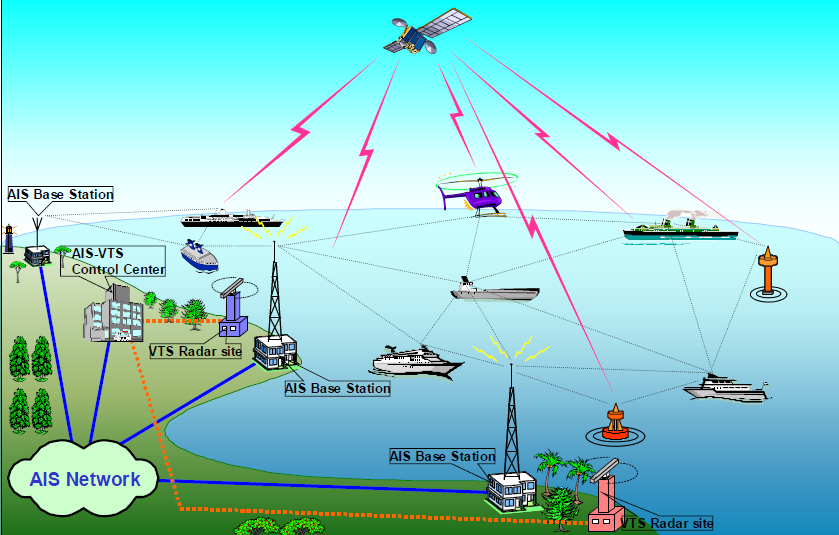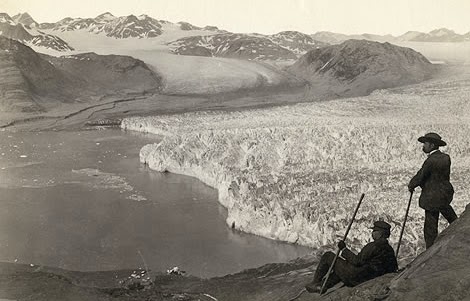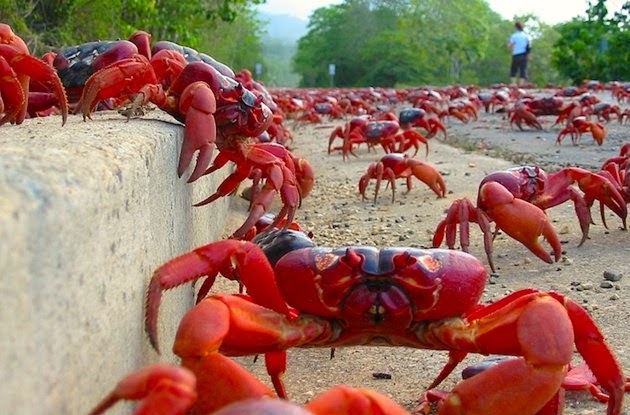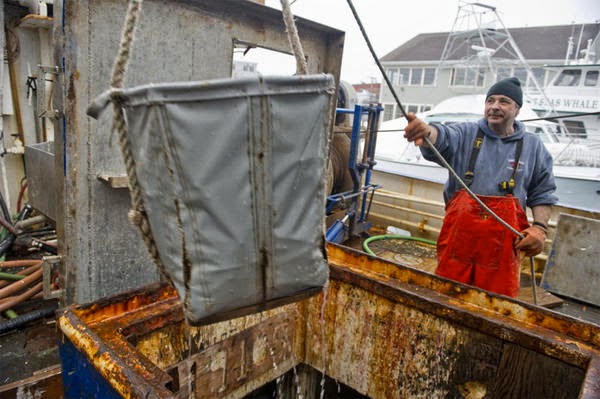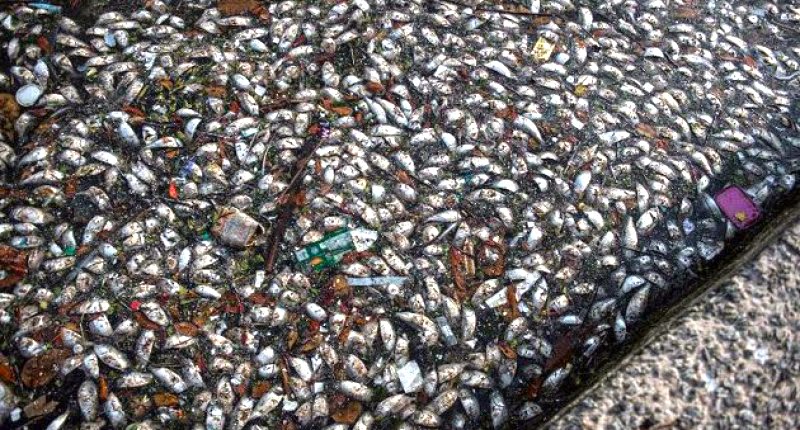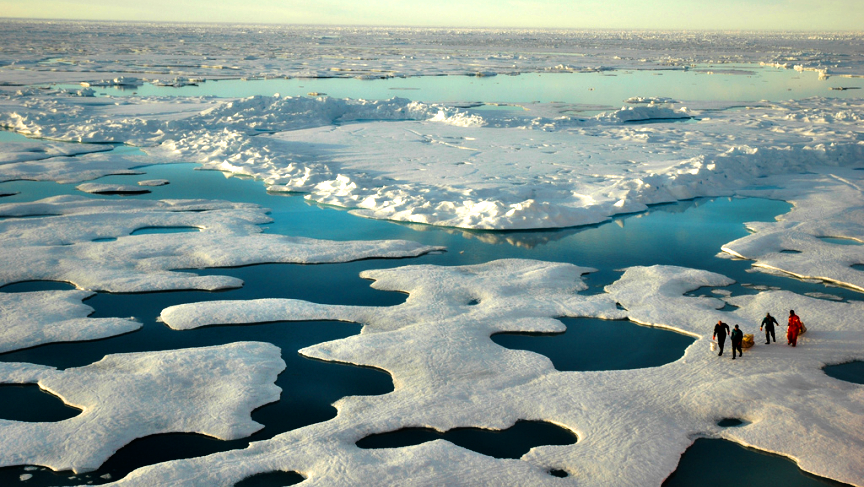1. Satellite-to-Laptop Technology to Target Fish Poachers
Conears. Future versions will show near-real-time data so that immediate action can be taken if fishing is happening servationists and the general public will soon be able to track large fishing vessels anywhere in the world using a global surveillance system. A prototype of the system, which uses Google’s mapping software and servers, was unveiled this week, displaying movements of 25,000 fishing vessels from the past two illegally. Read more here…
 Recent media stories have spotlighted research that involved running shrimp on treadmills and questioned why taxpayer dollars are being wasted on “exercising shrimp.” Now David Scholnick, the marine biologist who put shrimp on a treadmill, is speaking out. David and his colleagues were studying how changes in the oceans could affect marine organisms’ ability to fight infections – an important question whose answer has a direct impact on us, because the health of marine organisms is closely related to the safety of the seafood we eat. (And the treadmill cost just $50.) Read more here…
Recent media stories have spotlighted research that involved running shrimp on treadmills and questioned why taxpayer dollars are being wasted on “exercising shrimp.” Now David Scholnick, the marine biologist who put shrimp on a treadmill, is speaking out. David and his colleagues were studying how changes in the oceans could affect marine organisms’ ability to fight infections – an important question whose answer has a direct impact on us, because the health of marine organisms is closely related to the safety of the seafood we eat. (And the treadmill cost just $50.) Read more here…3. John Kerry Weighs in on Climate Change in New York Times Op-Ed
 The Internet is a virtual beehive of buzz about the Obama and Xi Jinping joint climate change announcement. John Kerry makes his thoughts known: “We need to solve this problem together because neither one of us can solve it alone. Even if the United States somehow eliminated all of our domestic greenhouse gas emissions, it still wouldn’t be enough to counteract the carbon pollution coming from China and the rest of the world. Likewise, even if China went down to zero emissions, it wouldn’t make enough of a difference if the United States and the rest of the world didn’t change direction.” Read more here…
The Internet is a virtual beehive of buzz about the Obama and Xi Jinping joint climate change announcement. John Kerry makes his thoughts known: “We need to solve this problem together because neither one of us can solve it alone. Even if the United States somehow eliminated all of our domestic greenhouse gas emissions, it still wouldn’t be enough to counteract the carbon pollution coming from China and the rest of the world. Likewise, even if China went down to zero emissions, it wouldn’t make enough of a difference if the United States and the rest of the world didn’t change direction.” Read more here…
4. Whale Deaths from Human Interactions Threaten Populations
Fishing gear entanglements, vessel strikes, and other human interactions were responsible for a quarter of known whales deaths in the North Atlantic over a five-year period, according to a recent study. These deaths threaten the recovery of whale species that are already struggling, such as the North Atlantic right whale. Even one animal lost can be devastating for the population. Read more here…
Mainstream environmentalists are questioning the vision of John Muir. Some are saying that his relentless campaign to protect large wild areas is outdated and no longer practical, and that current population trends make the idea of setting aside wild land “impractical.” Efforts would be better spent in the development of urban parks and roadways. If this is the paradigm shift regarding our national parks, what chance do we have to protect our oceans? Read more here…
—————————————————–
6. Crabs in Survival Mode
The increasing acidification of the ocean and rising temperatures have more of a direct impact on intertidal species. By testing metabolic rates and thermal tolerance, studies have shown crabs are under more pressure to simply stay alive, leaving less time or energy for growth or reproduction. Read more here…
7. Fish in American Waters Rebound
The Monterey Bay Aquarium’s Seafood Watch Program has reported that Atlantic haddock and nearly two dozen species of Pacific groundfish, including snapper, Dover sole, and dogfish, are rebounding. The recovery is likely the result of the U.S. management system and the passage of the Magnuson-Stevens Fishery Conservation and Management Act in 2007, which established management fishery councils and catch limits of threatened stocks. The lesson: we can restore marine populations and protect our oceans if we have the will to take meaningful action. Read more here…
8. Future of Barrier Reef – Hot Topic; Scientists Divided
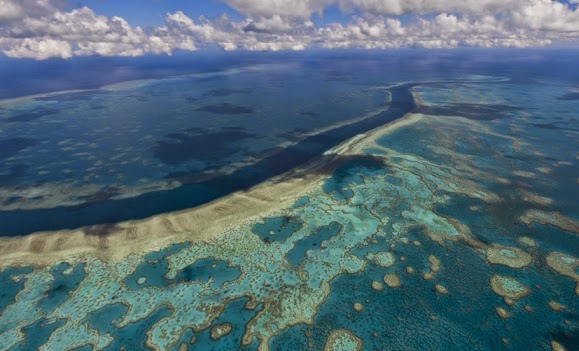 Next week, the United Nations Educational, Scientific and Cultural Organization (UNESCO) members will convene to discuss ecosystem management. This gathering only occurs once every ten years. The list of topics to be discussed is long, but perhaps the most controversial is the quality of the current management of the Great Barrier Reef (GBR). Once considered the crown jewel of marine protected areas, the GBR is experiencing degradation. Scientists do not agree on the extent of the damage, nor how the reef should be managed. Read more here…
Next week, the United Nations Educational, Scientific and Cultural Organization (UNESCO) members will convene to discuss ecosystem management. This gathering only occurs once every ten years. The list of topics to be discussed is long, but perhaps the most controversial is the quality of the current management of the Great Barrier Reef (GBR). Once considered the crown jewel of marine protected areas, the GBR is experiencing degradation. Scientists do not agree on the extent of the damage, nor how the reef should be managed. Read more here…
9. United Nations Conservation Conference Votes to Protect More Species
Thirty-one species of migratory animals, including polar bears, whales, sharks, rays, and gazelles, were granted protection status by the UN Conservation of Migratory Species of Wild Animals after intense negotiations in Quito, Ecuador. The list includes a record 21 species of sharks, rays, and sawfish. More than 900 experts from 120 countries were involved in the talks. Read more here…
Dead fish have been washing up in Rio’s polluted Guanabara Bay, worrying fishermen, locals, and sailors set to compete there in the 2016 Olympics. Twenty tons of dead fish and four sea turtles have already been removed. Some point the finger at state petrochemical giant Petrobras, but the likeliest culprit is high water temperatures. Read more here…
For the second year in a row, Maine regulators have canceled shrimping season. Conservationists have long proclaimed the ills of shrimping practices, citing trawling destruction and obscene by-catch waste as reasons to consider other menu items. Now shrimp are facing another challenge, warming waters. Numbers of these crustaceans have plummeted sharply over the last three years, and scientists are pointing fingers at climate change. Read more here…
12. Melting Arctic Ice
13. Slavery Meets Overfishing
While slow progress is being made in an industry plagued by forced slavery and abuse, lack of oversight and poor enforcement are key factors in another major problem: overfishing. Incredibly, China is flexing its economic muscle and openly flaunting regulations. Should China be forced to adhere to the laws, it would have a great environmental impact. Read more here…

